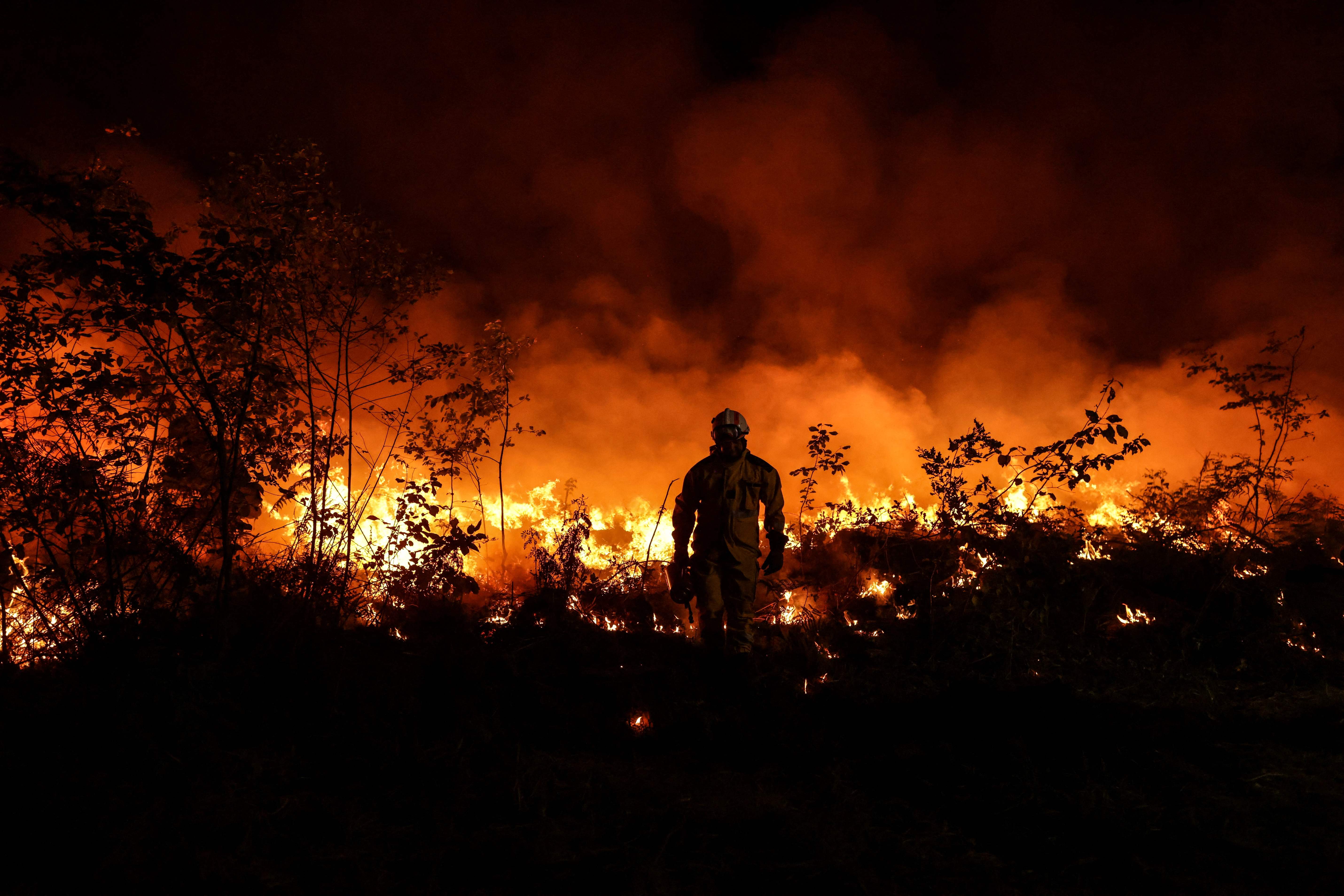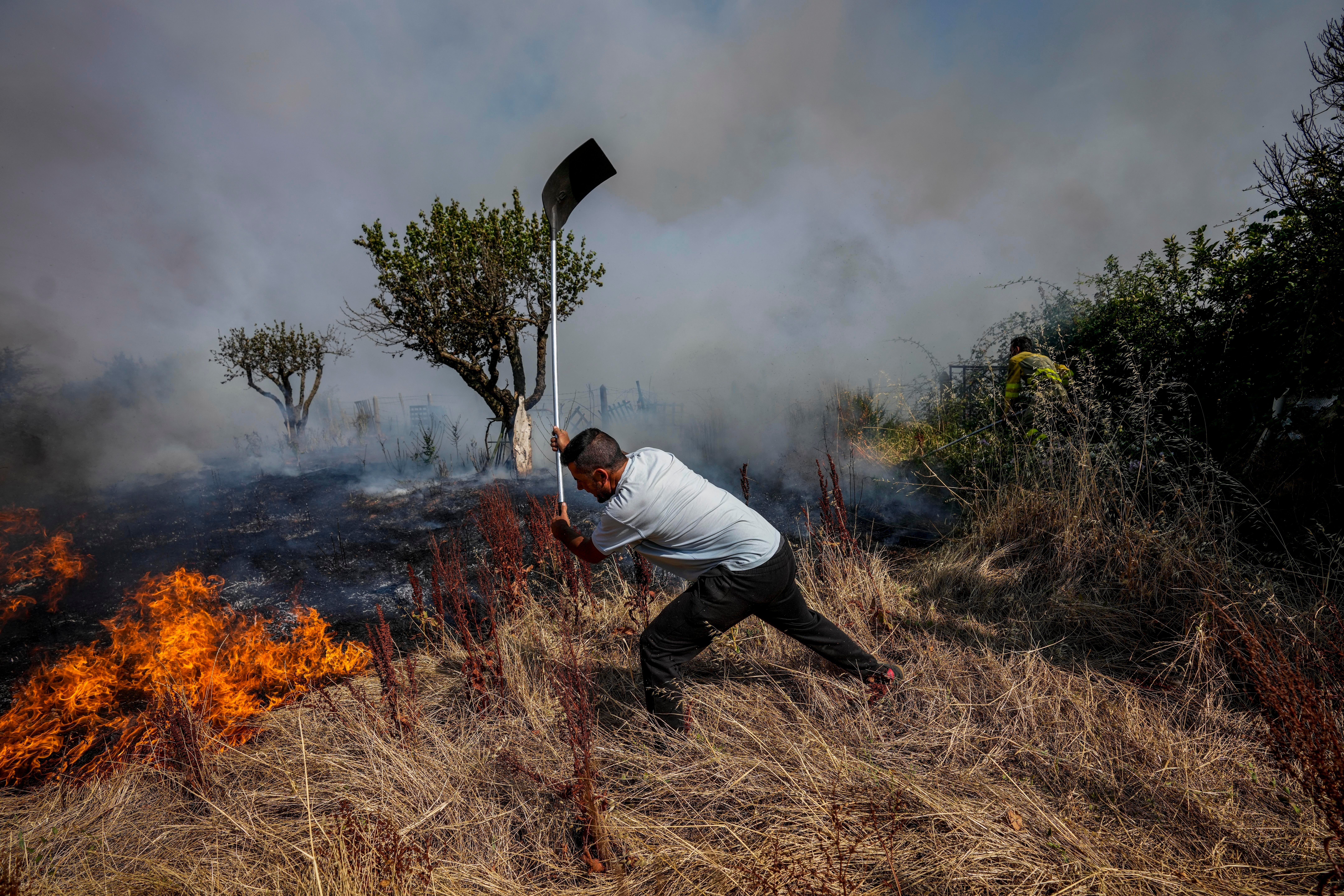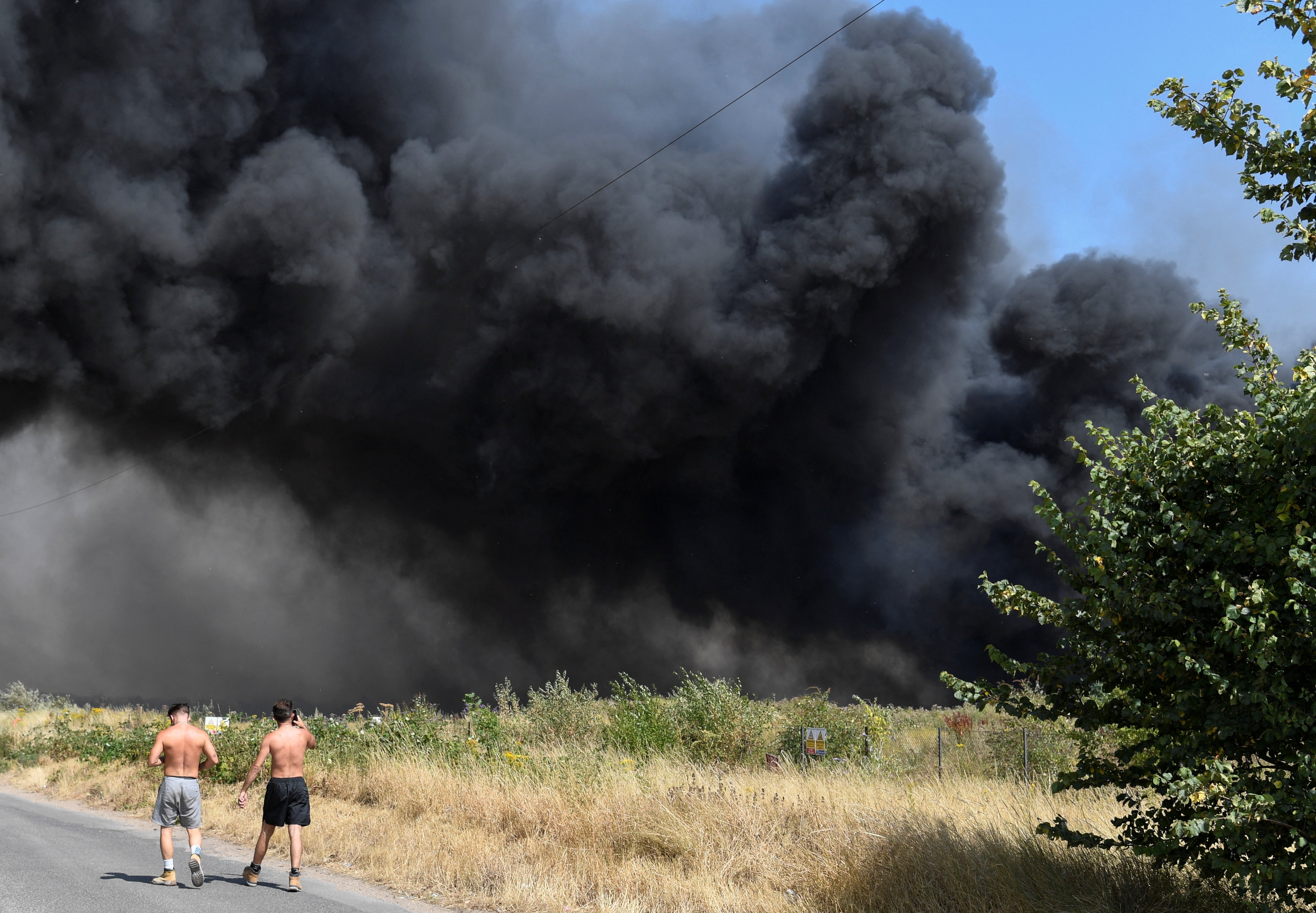Heatwave wildfires pumped out carbon emissions equal to Estonia’s yearly total
It’s also equivalent to around 11 million one-way tickets from London to New York

Your support helps us to tell the story
From reproductive rights to climate change to Big Tech, The Independent is on the ground when the story is developing. Whether it's investigating the financials of Elon Musk's pro-Trump PAC or producing our latest documentary, 'The A Word', which shines a light on the American women fighting for reproductive rights, we know how important it is to parse out the facts from the messaging.
At such a critical moment in US history, we need reporters on the ground. Your donation allows us to keep sending journalists to speak to both sides of the story.
The Independent is trusted by Americans across the entire political spectrum. And unlike many other quality news outlets, we choose not to lock Americans out of our reporting and analysis with paywalls. We believe quality journalism should be available to everyone, paid for by those who can afford it.
Your support makes all the difference.Wildfires that raged across Europe during the record-breaking heatwave emitted roughly the same amount of carbon dioxide as Estonia’s yearly total.
Between 8-21 July wildfires in the UK, France, Spain and Portugal spewed out around 11 million tonnes of planet-heating emissions, according to data by the EU-funded Copernicus Atmosphere Monitoring Service, which observes the planet’s environment.
That amount is close to Estonia’s annual emissions for 2020, according to the Global Carbon Atlas, a project that maps carbon data across the planet.

It is also equivalent to around 11 million one-way flights from London to New York, which on average emit around 1,000 kg of carbon dioxide per journey.
The UK’s annual CO2 emissions for 2020 were around 330 million tonnes, by comparison.
The Independent only analysed emissions data for days this month where the output was significantly higher than the daily average between 2003-2021, to better understand the impact of this year’s wildfires, which have been worsened by the extreme heat.
The fires in Spain produced the highest emissions with 6.4 million tonnes between 11-21 July. Those in Portugal between 8-21 July released around 2.8 million tonnes, while fires in France sent around 1.8 million tonnes of emissions into the atmosphere between 12-20 July.
Blazes in the UK emitted the least CO2, with 7,000 tonnes released on the hottest day on record, 19 July.
There is hope carbon will be extracted from the atmosphere at the affected sites in future once the vegetation regrows.
The number of UK wildfires and homes and businesses destroyed are thought to be unprecedented for a single day, according to Paul Hedley, the lead on wildfires for the National Fire Chiefs Council (NFCC).
The exact number of blazes has yet to be collated, but around 60 properties were destroyed by fires in London, Norfolk and Lincolnshire, according to the NFCC. Mr Hedley said while it was not the first time wildfires have destroyed property it was “incredibly rare” for this to happen.

London Fire Brigade said it was their busiest day since the Second World War. While major incidents were declared by 14 fire services across the country due to the volume of calls and the demand on their resources.
“That’s absolutely unprecedented,” Mr Hedley told The Independent. “I’ve never seen anything where there’s been the scale and the severity of what we saw on Tuesday.”
Mr Hedley said the areas most at risk were those where rural spaces meet urban ones. He said while he had expected temperatures like those on 19 July in the future due to global heating, he had not expected them in 2022.
The UK topped 40C for the first time on Tuesday, exceeding the previous record by 1.6C. The Met Office has said the extreme heat was far more intense and widespread than previous heatwaves, with a total of 46 weather stations measuring above the previous UK high of 38.7C.
Climate scientists have long warned that global heating is making heatwaves across the UK and Europe longer, hotter and more likely.
“Although we’ve been saying this is coming, myself and other personnel within the National Fire Chief Council wildfire group had probably thought we had a window of opportunity of at least a few years where we were able to continue preparations before the reality of what hit on Tuesday came to the UK,” he said. “We’ll be reassessing our plans, and what we can do to better prepare from now.”
That will include adapting land to make sure it’s more resilient to wildfire by introducing more firebreaks in vegetation and reintroducing animal grazing to keep grass down. It also meant doing more to raise the awareness of the general public about the threats of wildfires, he added.
As well as the impact on land, wildfires spew out pollution which can cause illnesses like asthma and heart disease. The heatwave had already caused “unhealthy levels” of surface ozone in parts of Europe and earlier this week, American rock band Pearl Jam cancelled a gig in Vienna after they said their singer’s throat was left damaged by the “heat, dust and smoke” from European fires.
Join our commenting forum
Join thought-provoking conversations, follow other Independent readers and see their replies
Comments